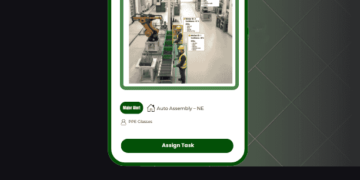When managing a commercial property, comfort, efficiency, and cost-effectiveness are always top priorities. Whether you operate a small office, a retail space, or a large industrial facility, two essential systems demand regular attention: your commercial air conditioning and water heater. Both systems play a critical role in day-to-day operations, and when they begin to underperform or fail, they can disrupt business and inflate operating costs.
In this comprehensive guide, we’ll explore everything business owners need to know about commercial air conditioning and water heater replacement—when to replace, how to choose the right system, benefits of upgrading, and maintenance tips to protect your investment.
Why Timely Replacement Matters
Both air conditioning and water heating systems are long-term investments. However, even the highest quality units wear out with time and use. Replacing them at the right time can prevent unexpected downtime and reduce repair expenses.
Commercial Air Conditioning Systems
Commercial air conditioning systems are designed for large-scale usage and tend to run longer hours than residential units. This heavy usage leads to faster wear and tear. Most commercial AC systems last around 15–20 years with proper maintenance, but signs of decline may appear much sooner.
Water Heaters in Commercial Settings
Depending on the type and model, commercial water heaters have a lifespan of 8 to 12 years. A failing water heater can disrupt operations—especially in industries like hospitality, food service, or healthcare where hot water is essential.
Signs You Need to Replace Your Commercial AC or Water Heater
Knowing when to replace your system instead of repeatedly repairing it can save time and money. Here are some tell-tale signs it’s time for an upgrade:
For Commercial Air Conditioning:
Inconsistent temperatures or poor airflow
Frequent repairs and rising maintenance costs
Excessive noise or strange odors
Energy bills have been steadily increasing
System uses outdated refrigerant (like R-22)
Unit is 15+ years old
For Commercial Water Heaters:
Hot water runs out quickly or takes too long to heat
Rusty or discolored water
Leaks or puddles around the unit
Unusual noises during operation
Excessive energy consumption
System age exceeds 10 years
Choosing the Right Commercial Air Conditioning System
When it’s time for a replacement, selecting the right AC system is crucial. The wrong size or type can lead to inefficiency and discomfort. Here are common types of commercial AC systems:
Single Split System
Ideal for small offices or cafes. These are cost-effective and allow individual control.
Multi-Split System
Connects multiple indoor units to one outdoor unit. Great for medium-sized commercial buildings.
VRF/VRV Systems (Variable Refrigerant Flow/Volume)
Highly energy-efficient and ideal for medium to large buildings with varied usage zones.
Packaged Air Conditioners
All components are housed in one unit, typically used on rooftops.
Chillers
Suitable for very large spaces like factories or malls.
Factors to Consider:
Square footage and layout of the building
Number of zones needing temperature control
Local climate conditions
Energy efficiency ratings (SEER, EER, ENERGY STAR certification)
Compatibility with existing ductwork or controls
Choosing the Right Commercial Water Heater
Commercial water heater selection is just as important. Here are the main types:
Storage Tank Water Heaters
Store heated water in a tank. Best for steady, predictable hot water demand.
Tankless Water Heaters (On-Demand)
Heat water only when needed. Ideal for businesses with varying usage and energy-saving goals.
Heat Pump Water Heaters
Use ambient air to heat water. Highly energy-efficient but best for warmer climates.
Solar Water Heaters
Environmentally friendly and cost-effective over time but higher upfront costs.
Boiler Systems
Can serve both heating and hot water needs. Best for large commercial buildings.
Important Considerations:
Peak hot water demand
Energy source (electric, gas, solar, etc.)
Installation space
Recovery rate and efficiency ratings
Local building codes and regulations
Benefits of Upgrading Your Systems
Upgrading your commercial air conditioning and water heater systems offers several compelling benefits:
Improved Energy Efficiency
Newer models consume less energy, helping reduce your monthly utility bills and your carbon footprint.
Better Indoor Comfort
New HVAC systems offer improved airflow, humidity control, and temperature consistency.
Reduced Repair Costs
Replacing outdated units minimizes the need for constant repairs and emergency service calls.
Regulatory Compliance
New systems often meet or exceed current energy and environmental regulations, avoiding fines and inspections.
Smart Controls & Automation
Modern systems are compatible with smart thermostats and building management systems (BMS), making operations more efficient and easy to monitor.
Higher Property Value
Energy-efficient systems enhance building value and make your property more attractive to tenants or buyers.
Installation Tips and What to Expect
Professional installation is key to maximizing performance and lifespan. Here’s what to expect during the replacement process:
Initial Assessment
HVAC and plumbing professionals will evaluate your current systems, building layout, and usage patterns.
System Sizing & Selection
Based on building load calculations and water demand, they’ll recommend the best-fit models.
Permits and Regulations
Contractors handle necessary permits and ensure compliance with local codes.
Installation & Testing
Depending on system complexity, installation may take several days. Technicians will test the systems for efficiency and safety.
Training & Maintenance Schedule
Your team may receive a quick tutorial on using smart controls and scheduling routine maintenance.
Maintenance for Long-Term Efficiency
Proper upkeep is essential to extending the life of your commercial air conditioning and water heating systems.
For HVAC:
Replace filters every 1–3 months
Clean condenser coils and ducts annually
Schedule professional inspections twice a year
Monitor refrigerant levels and electrical connections
For Water Heaters:
Flush the tank yearly to remove sediment
Inspect anode rod every 2–3 years
Check pressure relief valve regularly
Schedule annual inspections
Final Thoughts
Commercial air conditioning and water heater replacement may feel like a significant investment, but it’s one that pays dividends in reliability, comfort, energy savings, and peace of mind. By staying proactive and informed, you can ensure your business remains efficient and comfortable year-round.
Whether you’re experiencing system failures or simply want to upgrade to more energy-efficient models, consulting with experienced HVAC and plumbing professionals will help you choose the right solutions tailored to your business needs.


















